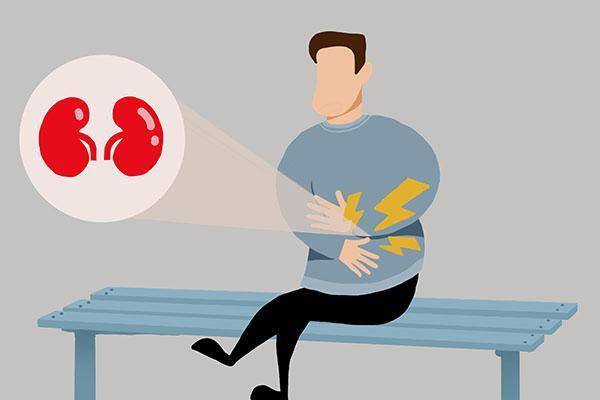The kidney is an important part of the body, especially for men. Only with the healthy functioning of the kidney can a man’s body operate smoothly. The kidney mainly has the function of metabolism and detoxification, helping to remove waste from the body.
The kidney is where urine is formed in the body. Therefore, many times, we can assess the health of the kidneys through changes in urine. In individuals with healthy kidneys, urine is smoothly excreted, and its color is usually light yellow or colorless, without much odor. However, if the kidneys are damaged, urine problems can easily occur.
How does urine change when the kidneys are damaged?
When a man’s kidneys have problems, there will be changes in the volume of urine produced, sudden increases or decreases, especially increased nighttime urination, accompanied by a burning sensation during urination. Most often, this is due to kidney inflammation, leading to abnormal urine.
If frequent urination and urgent urination occur, and there are changes in the color of urine during voiding, it requires attention.
If the urine appears dark yellow, it may be due to drinking insufficient water or holding urine for too long. If this occurs frequently, it can be very harmful to the body, increasing the burden on the kidneys, leading to inflammation or even renal failure.
If the urine appears tea-colored, it indicates damage not only to the kidneys but also possibly to the liver. A decrease in the metabolism levels of these two organs can lead to body operation issues, resulting in tea-colored urine.
If there is blood in the urine, except for consuming pigmented food, most factors indicate bodily damage. Kidney damage can cause blood in the urine, requiring vigilance for the onset of kidney failure. It is best to undergo timely examination to address any issues.
When there is protein in the urine, indicating the presence of more bubbles in the urine, which should dissipate within seconds in a healthy individual. If protein is present, these bubbles persist. The appearance of protein in the urine requires caution as it may signify kidney failure or the onset of uremia, a serious issue that demands attention.
If the excreted urine appears cloudy, it should be noted as it could be due to inflammation in the body, not necessarily limited to kidney inflammation but could also indicate cystitis or urethritis. Whatever the cause, it should be taken seriously and addressed promptly to minimize damage.
Whenever there are changes in urine, whether in color, odor, or clarity, it should be taken seriously. Corresponding actions should be taken to reduce harm to the body.
How to care for the kidneys?
If you want to know if your kidneys are in good condition, observe changes in urine. Therefore, it is essential to ensure normal urine excretion by maintaining adequate water intake daily, promoting urine production, facilitating waste elimination, reducing the burden on the kidneys, and allowing natural, smooth operation.
Be cautious about taking medication indiscriminately as it can be harmful to the body. Medications are potent, and there is no need to take them for minor issues. The body metabolizes drugs with the kidneys, so consumption should be controlled.
In terms of diet, consume foods that are good for the kidneys. It is recommended to eat more black foods such as black beans, mulberries, and foods rich in zinc like oysters and nuts. These foods aid kidney health, boost immunity, and are beneficial for the body.
Kidney health is fundamental to bodily functions. When issues arise, the body undergoes noticeable changes. Addressing changes in urine promptly based on different variations can reduce the appearance of harm. If there are no abnormal signals, it indicates that kidney function is relatively good.


